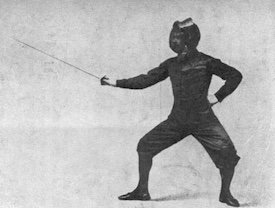bigshot
Headphoneus Supremus
There is nothing wrong with adjusting your curve to taste, but I've always focused on accuracy first, and I get that as close as I can before tweaking for personal taste. I learned that from EQing. You always want a baseline curve to work from, because you don't want to drift aimlessly between corrections. There are auto EQ gadgets that can get you in the ball park. You use the curve that generates as your baseline, and make small corrections, one at a time. If you aren't sure you're going in the right direction, pop back to the baseline and try again. It's a lot easier to discern subjective improvement if you correct in one direction at a time and work in small increments. Every frequency affects every other frequency, so you'll find you tend to seesaw a bit. That's natural. You have to strike a proper balance across the range. If you do it a little at a time with a careful approach, you'll probably find that the subjective adjustments you make aren't that far from the baseline. You also learn how to analyze response and identify problems and develop strategies for how to deal with them.
If you throw your hands up and start out from a random curve and make wide adjustments, your ears have a lot more trouble discerning what works and what doesn't. I imagine what is happening is your brain is trying to adjust to the imbalance and confusing the process. You'll listen to one wildly imbalanced curve for a while and your ears will adjust to it. Then a day or two later, the imbalance will be very irritating and you'll readjust again. Rinse and repeat and you end up going from one extreme to the next, never arriving at a curve you really like. You never learn anything about how to analyze and correct imbalances because random methods produce random results.
Calibrating is important to do before you start adding the subjective salt and pepper, because of masking issues. You can't balance frequencies to your own taste when you can't hear all of them. The most detailed, full range and balanced sound I've ever heard have been on the mixing stages I've worked on. My home system isn't quite there, but it that the goal I'm aimed at. Of course in a home, you have to make certain concessions for livability. The more concessions you make, the further you get from accurate. But even if you can't achieve absolute perfection, pretty close to perfect is better than random subjectivity. Would I like to have a calibrated studio in my home? You bet! But I don't have the room for it right now.
If you throw your hands up and start out from a random curve and make wide adjustments, your ears have a lot more trouble discerning what works and what doesn't. I imagine what is happening is your brain is trying to adjust to the imbalance and confusing the process. You'll listen to one wildly imbalanced curve for a while and your ears will adjust to it. Then a day or two later, the imbalance will be very irritating and you'll readjust again. Rinse and repeat and you end up going from one extreme to the next, never arriving at a curve you really like. You never learn anything about how to analyze and correct imbalances because random methods produce random results.
Calibrating is important to do before you start adding the subjective salt and pepper, because of masking issues. You can't balance frequencies to your own taste when you can't hear all of them. The most detailed, full range and balanced sound I've ever heard have been on the mixing stages I've worked on. My home system isn't quite there, but it that the goal I'm aimed at. Of course in a home, you have to make certain concessions for livability. The more concessions you make, the further you get from accurate. But even if you can't achieve absolute perfection, pretty close to perfect is better than random subjectivity. Would I like to have a calibrated studio in my home? You bet! But I don't have the room for it right now.
Last edited:




















